Book Series: Post45@StanfordUP
Kate Marshall and Loren Glass, Editors
Post•45 Collective, Series Board
Stanford University Press
Post•45 publishes groundbreaking work on US culture from the Second World War to the present. Books in this series aim to interrogate rather than reproduce critical orthodoxies—to ask basic questions about how to read and categorize postwar culture. To that end, the series focuses on American literature and culture, but also on work that takes seriously the decreasing specificity of a national literature in the wake of the "American Century." We welcome submissions on a wide range of cultural forms, including literature, film, drama, music, graphic arts, and new media.
Recent and Upcoming Books in the Post•45 Series
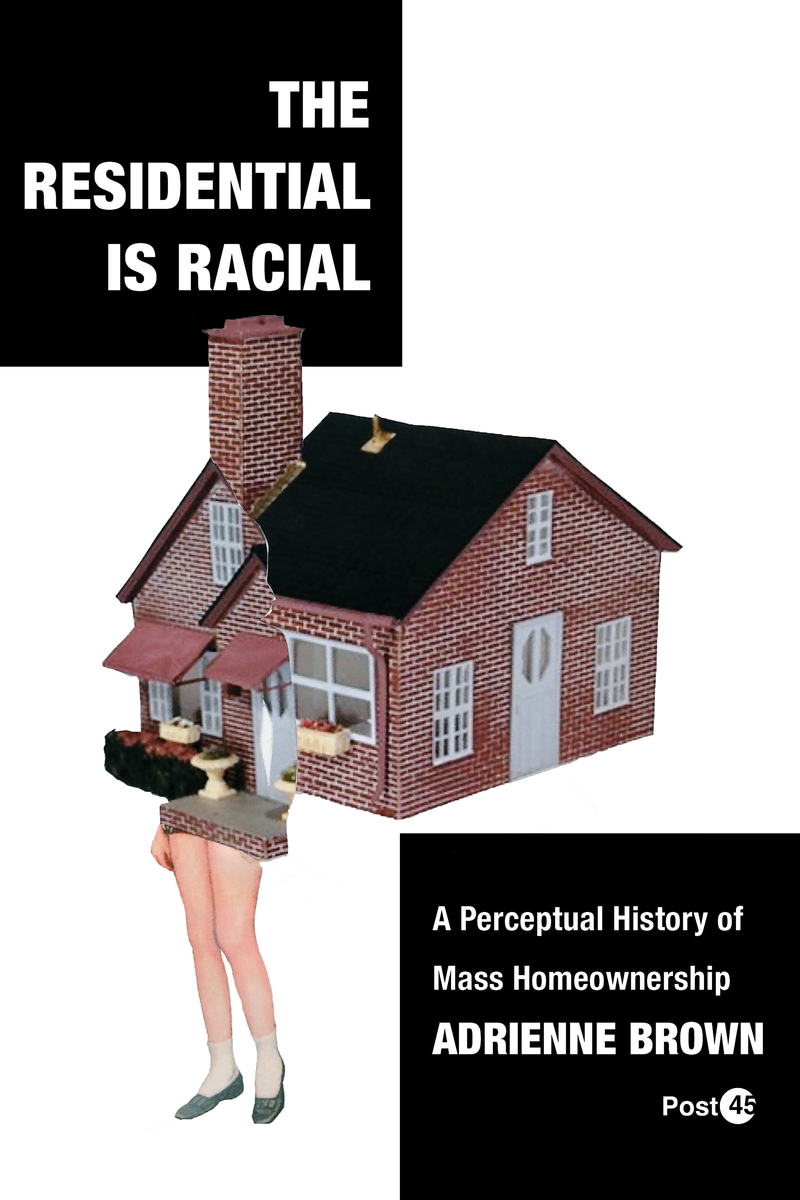

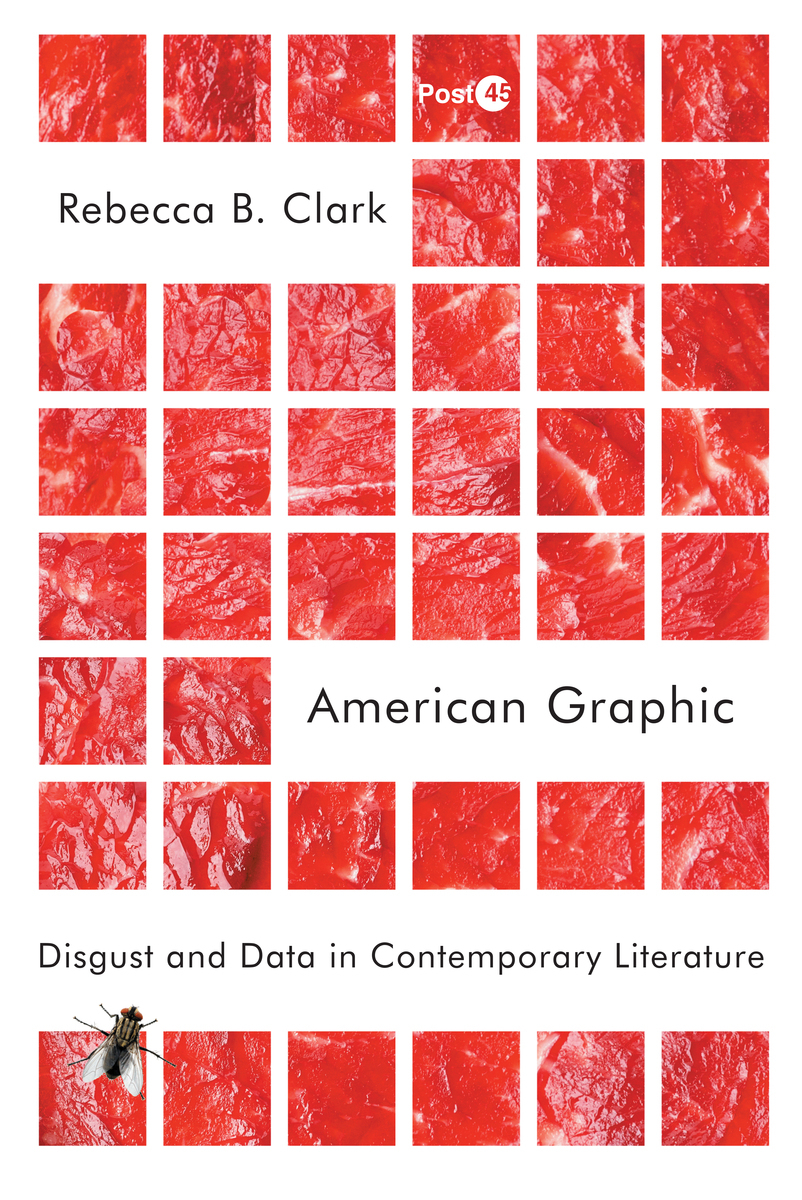
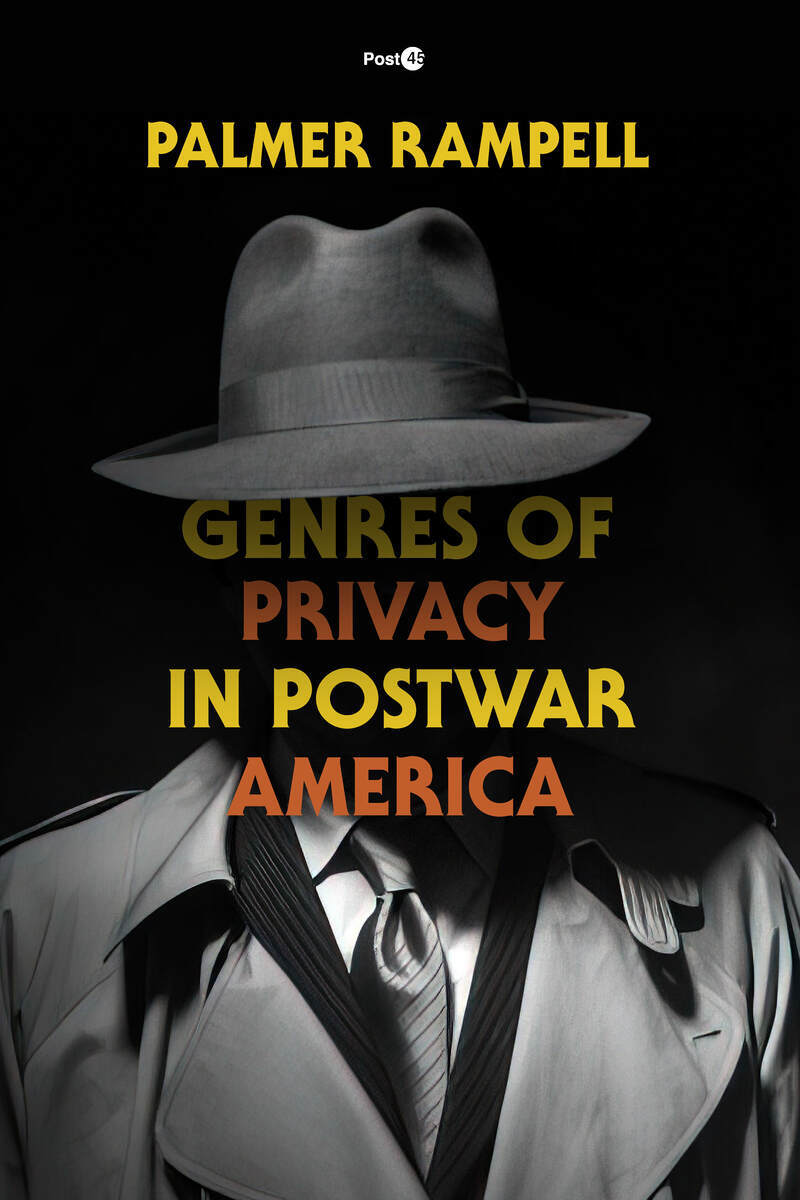
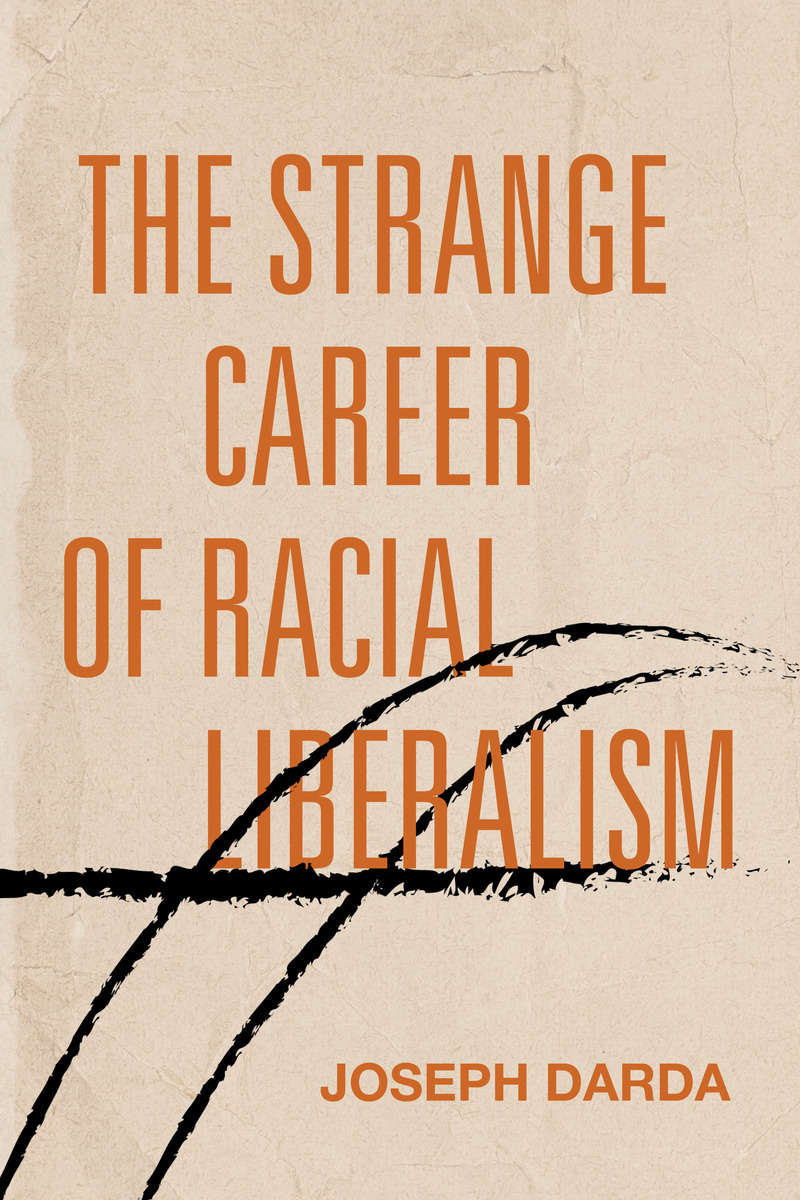
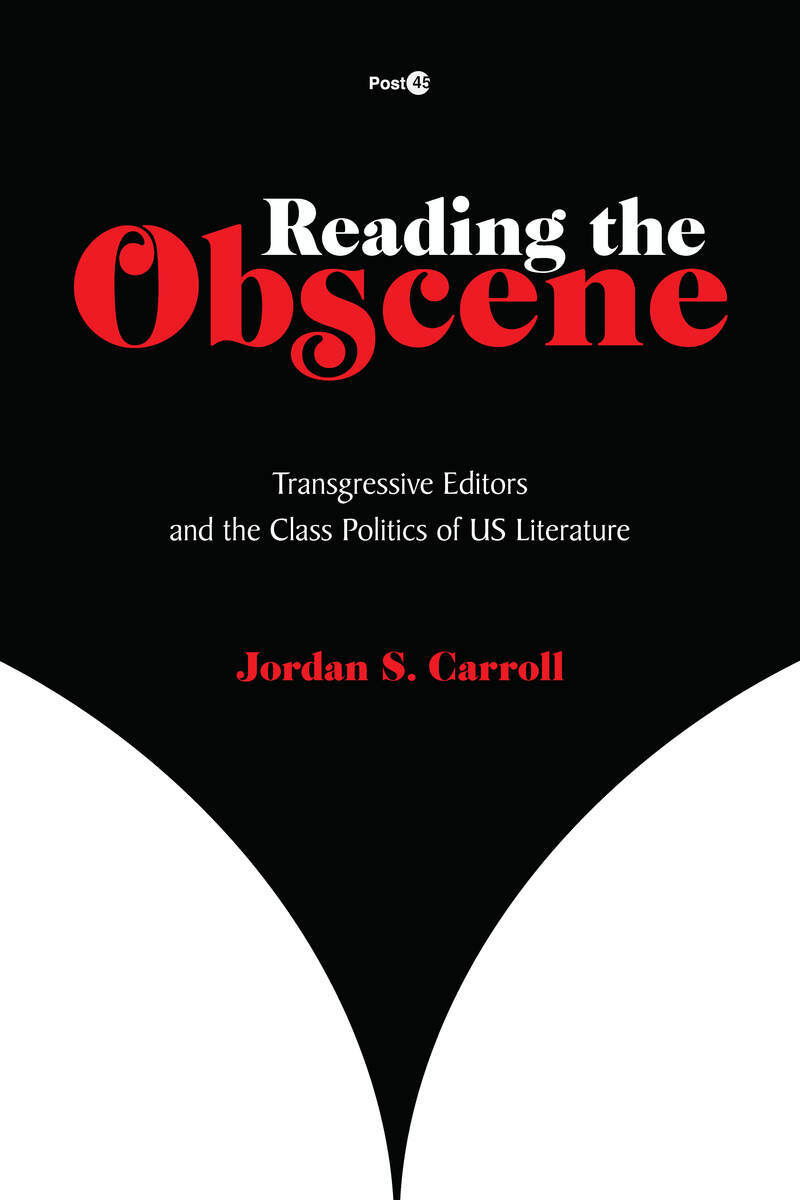
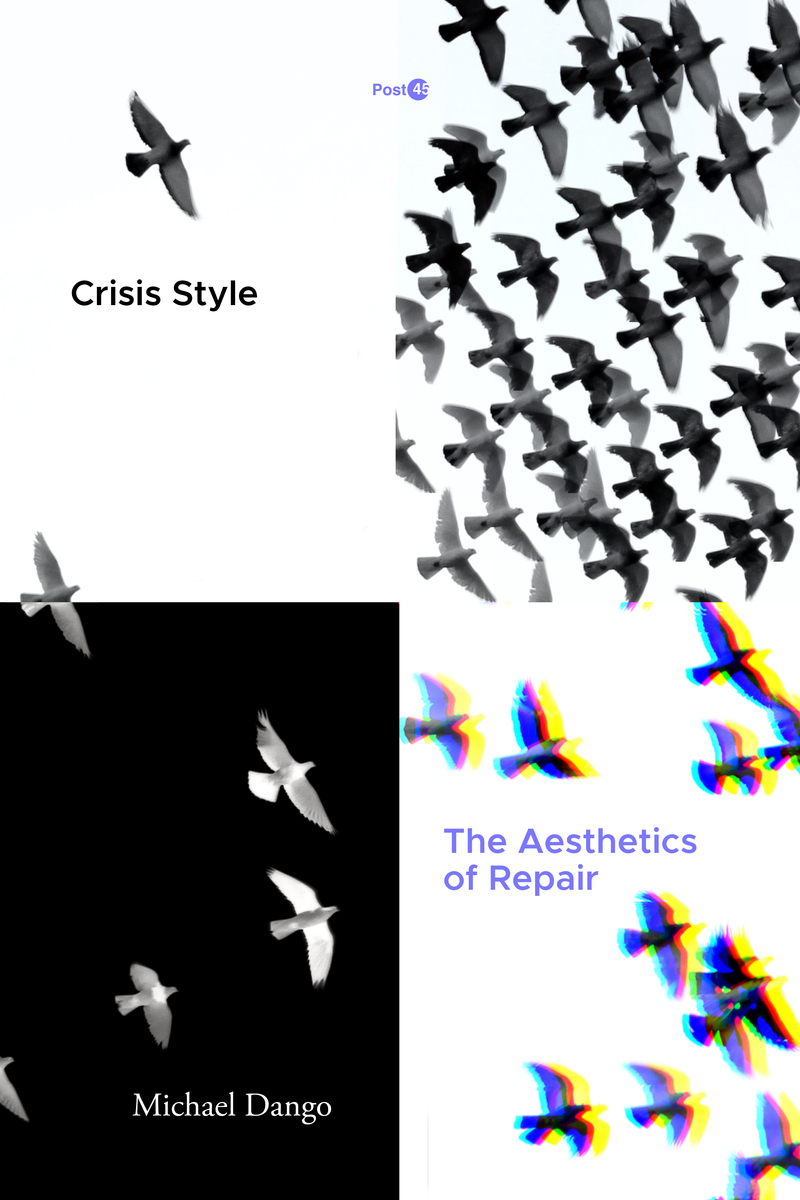
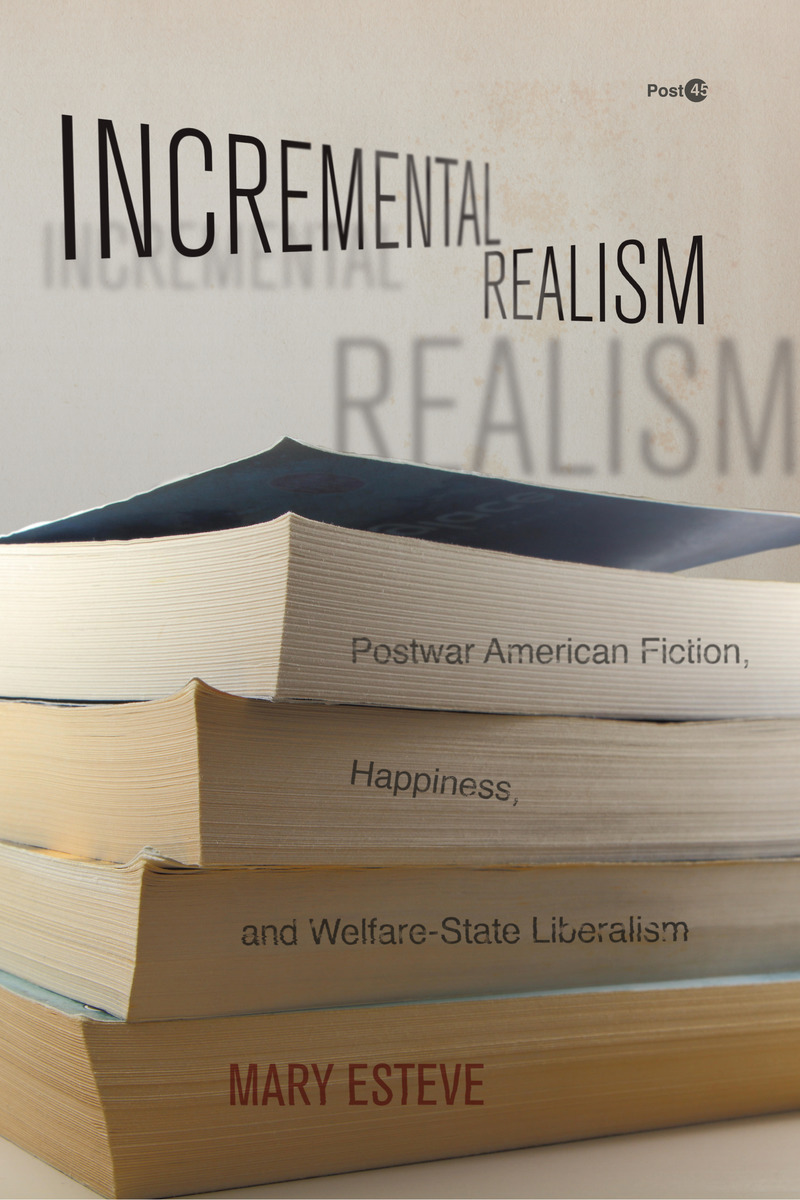
For earlier publications in the book series, see Stanford University Press’s Post•45 page.
Adrienne Brown, The Residential is Racial: A Perceptual History of Mass Homeownership (March 2024)

Housing experts and activists have long described the foundational role race has played in the creation of mass homeownership. This book insistently tracks the inverse: the role of mass homeownership in changing the definition, perception, and value of race.
In The Residential is Racial Adrienne Brown reveals how mass homeownership remade the rubrics of race, from the early cases realtors made for homeownership’s necessity to white survival through to the 1968 Fair Housing Act. Reading real estate archives and appraisal textbooks alongside literary works by F. Scott Fitzgerald, John Steinbeck, Lorraine Hansberry, Richard Wright, Gwendolyn Brooks, James Baldwin, Ralph Ellison, John Cheever, and Thomas Pynchon, Brown goes beyond merely identifying the discriminatory mechanisms that the real estate industry used to forestall black homeownership. Rather, she reveals that redlining and other forms of racial discrimination are perceptual modes, changing what it meant to sense race and assign it value.
Resituating residential discrimination as a key moment within the history of perception and aesthetics as well as of policy, demography, and democracy, we get an even more expansive picture of both its origins and its impacts. This book discovers that the racial honing of perception on the block—seeing race like a bureaucrat, an appraiser, and a homeowner—has become central to the functioning of the residential itself.
Adrienne Brown is Associate Professor in the Departments of English and Race, Diaspora, and Indigeneity, University of Chicago.
More about The Residential is Racial at Stanford University Press
“Brown offers us a wide-ranging provocation about the role of perception in shaping the link between mass homeownership and the changing meaning of racial difference. This is a work of ambitious investigation that results in many gifts of scholarly precision, narrative refinement, and historical recovery.”
Davarian L. Baldwin, Trinity College
“The Residential is Racial assembles a wide range of texts and deploys a keen archival sensibility to argue that racial perceptions have played an outsize role in promoting mass homeownership in the United States. An illuminating account of real estate’s perceptual and affective color lines, this book asks for a reassessment of exactly what kind of values Americans attach to owning a home at all.”
Kinohi Nishikawa, Princeton University
“Brown’s incomparable study makes that case that we cannot understand property rights without comprehending the affective logic of racialized ownership. Chapter by chapter, Brown makes visible for readers the vapor trails of how racial perceptions formed in the twentieth century.”
Mabel O. Wilson, Columbia University
Patrick Whitmarsh, Writing Our Extinction: Anthropocene Fiction and Vertical Science (April 2023)

Mid-twentieth-century developments in science and technology produced new understandings and images of the planet that circulated the globe, giving rise to a modern ecological consciousness; but they also contributed to accelerating crises in the global environment, including climate change, pollution, and waste. In this new work, Patrick Whitmarsh analyzes postwar narrative fictions that describe, depict, or express the earth from above (the aerial) and below (the subterranean), revealing the ways that literature has engaged this history of vertical science and linked it to increasing environmental precarity, up to and including the extinction of humankind.
Whitmarsh examines works by writers such as Don DeLillo, Karen Tei Yamashita, Reza Negarestani, and Colson Whitehead alongside postwar scientific programs including the Space Race, atmospheric and underground nuclear testing, and geological expeditions such as Project Mohole (which attempted to drill to the earth’s mantle). As Whitmarsh argues, by focusing readers’ attention on the fragility of postwar life through a vertical lens, Anthropocene fiction highlights the interconnections between human behavior and planetary change. These fictions situate industrial history within the much longer narrative of geological time and reframe scientific progress as a story through which humankind writes itself out of existence.
Patrick Whitmarsh is a Visiting Assistant Professor of Environmental Humanities at Wofford College. He has published essays in MFS: Modern Fiction Studies, JML: The Journal of Modern Literature, and SFS: Science Fiction Studies.
More about Writing Our Extinction at Stanford University Press
“This brilliant book tackles a vital topic with creativity, grace, and depth. Chock full of ideas, Writing Our Extinction opens up fascinating questions about what Whitmarsh calls ‘vertical science.’ A crucial touchstone for current debates in ecocriticism.”
Caren Irr, Brandeis University
“What happens when we look up? Or look down? Writing Our Extinction insists these are vital questions to ask, as it carefully shows how vertical perspectives illuminate a present ripe with the anticipation of our species’ demise.”
Min Hyoung Song, Boston College
“[For] an ecological humanism characteristically prone to deep despair (on the one hand) and deluded self-aggrandizement (on the other), Writing Our Extinction is an exemplary model for how to do this hard work right.”
Gerry Canavan, H-Environment
Rebecca B. Clark, American Graphic: Disgust and Data in Contemporary Literature (December 2022)

What do we really mean when we call something “graphic”? In American Graphic, Rebecca Clark examines the “graphic” as a term tellingly at odds with itself. On the one hand, it seems to evoke the grotesque; on the other hand, it promises the geometrically streamlined in the form of graphs, diagrams, and user interfaces. Clark’s innovation is to ask what happens when the same moment in a work of literature is graphic in both ways at once. Her answer suggests the graphic turn in contemporary literature is intimately implicated in the fraught dynamics of identification. As Clark reveals, this double graphic indexes the unseemliness of a lust—in our current culture of information—for cool epistemological mastery over the bodies of others.
Clark analyzes the contemporary graphic along three specific axes: the ethnographic, the pornographic, and the infographic. In each chapter, Clark’s explication of the double graphic reads a canonical author against literary, visual and/or performance works by Black and/or female creators. Pairing works by Edgar Allan Poe, Vladimir Nabokov, and Thomas Pynchon with pieces by Mat Johnson, Kara Walker, Fran Ross, Narcissister, and Teju Cole, Clark tests the effects and affects of the double graphic across racialized and gendered axes of differences. American Graphic forces us to face how closely and uncomfortably yoked together disgust and data have become in our increasingly graph-ick world.
Rebecca B. Clark received her PhD in English from the University of California, Berkeley. Her work has been published in the journals Narrative, postmedieval, and Post45. She has taught at UC Berkeley and Dartmouth College.
“This stylishly written book offers a series of masterful examples of the value of close reading, opening up provocative connections between formality and filthiness, detachment and disgust.”
Eugenie Brinkema, Massachusetts Institute of Technology
“A smart, lively, consistently unsettling book. Clark’s superb analysis of works that are at once grotesque and clinical boldly charts the sentimental politics of affect and identification for our age of data-driven cool.”
Justus Nieland, Michigan State University
“Clark has written a groundbreaking and timely book, one that interrogates the social implications of the flat registers that digital and visual culture create. She disrupts our relationships with sleek digital artifacts and the consequential flat affects that shape our everyday lives. And in doing so, she pushes on the limits of what the digital humanities can be and do.”
Liliana M. Naydan, American Literary History
Palmer Rampell, Genres of Privacy in Postwar America (June 2022)

With this incisive work, Palmer Rampell reveals the surprising role genre fiction played in redefining the category of the private person in the postwar period. Especially after the Supreme Court established a constitutional right to privacy in 1965, legal scholars, judges, and the public scrambled to understand the scope of that right. Before and after the Court’s ruling, authors of genre fiction and film reformulated their aliens, androids, and monsters to engage in debates about personal privacy as it pertained to issues like abortion, police surveillance, and euthanasia.
Triangulating novels and films with original archival discoveries and historical and legal research, Rampell provides new readings of Patricia Highsmith, Dorothy B. Hughes, Philip K. Dick, Octavia Butler, Chester Himes, Stephen King, Cormac McCarthy, and others. The book pairs the right of privacy for heterosexual sex with queer and proto-feminist crime fiction; racialized police surveillance at midcentury with Black crime fiction; Roe v. Wade (1973) with 1960s and 1970s science fiction; the Child Abuse Prevention and Treatment Act (1974) with horror; and the right to die with westerns. While we are accustomed to defenses of fiction for its capacity to represent fully rendered private life, Rampell suggests that we might value a certain strand of genre fiction for its capacity to theorize the meaning of the protean concept of privacy.
Palmer Rampell received his Ph.D. in English from Yale University. His writing has appeared in the Los Angeles Review of Books, Public Books, and the Washington Post.
“In crisp and lucid prose, Palmer Rampell gives us new and compelling views of the ambitious genre writers who explored the rough edges of the postwar liberal consensus. Bolstered with rare finds from Rampell’s original archival research, this book brilliantly shows the unnoted power of genre fiction.”
Sean McCann, author of A Pinnacle of Feeling
“This richly interdisciplinary book transforms our understanding of the relationship between privacy and literature, and Rampell’s provocative readings of genre fiction mount a compelling case against literary and liberal truisms about the bourgeois private self.”
Annie McClanahan, author of Dead Pledges
“Genres of Privacy is a brainy and painstaking literature review of a variety of postwar genre works and their relationship to contemporary privacy-related issues… Rampell’s expansive definition of the right to privacy gives his book a wide sweep and provides a view into several different issues and genres, lending it an immediate relevance.”
Harrison Blackman, Los Angeles Review of Books
Joseph Darda, The Strange Career of Racial Liberalism (March 2022)

How Americans learned to wait on time for racial change
What if, Joseph Darda asks, our desire to solve racism—with science, civil rights, antiracist literature, integration, and color blindness—has entrenched it further? In The Strange Career of Racial Liberalism, he traces the rise of liberal antiracism, showing how reformers’ faith in time, in the moral arc of the universe, has undercut future movements with the insistence that racism constitutes a time-limited crisis to be solved with time-limited remedies.
Most historians attribute the shortcomings of the civil rights era to a conservative backlash or to the fracturing of the liberal establishment in the late 1960s, but the civil rights movement also faced resistance from a liberal “frontlash,” from antiredistributive allies who, before it ever took off, constrained what the movement could demand and how it could demand it. Telling the stories of Ruth Benedict, Kenneth Clark, W. E. B. Du Bois, John Howard Griffin, Pauli Murray, Lillian Smith, Richard Wright, and others, Darda reveals how Americans learned to wait on time for racial change and the enduring harm of that trust in the clock.
Joseph Darda is Associate Professor of English at Michigan State University. He is the author of How White Men Won the Culture Wars: A History of Veteran America and Empire of Defense: Race and the Cultural Politics of Permanent War.
More about The Strange Career of Racial Liberalism at Stanford University Press
“A riveting guide to why the grand movement demand for ‘Freedom now!’ was so often eclipsed by what Dr. King called the ‘tranquilizing drug of gradualism.’ As acute in its meditations on the nature of time as it is in its dissection of racial liberalism.”
David Roediger, author of The Sinking Middle Class: A Political History
“Darda’s powerful and elegant book places racial liberalism at the center of a national story about the endurance of racial subordination within a political system predicated on formal rights and equality. Provides essential bearings for our current moment of racial rebellion and reaction.”
Daniel Martinez HoSang, Author of A Wider Type of Freedom: How Struggles for Racial Justice Liberate Everyone
Jordan S. Carroll, Reading the Obscene: Transgressive Editors and the Class Politics of US Literature (2021)

Winner of the 2022 MLA Prize for Independent Scholars, sponsored by the Modern Language Association (MLA).
With Reading the Obscene, Jordan Carroll reveals new insights about the editors who fought the most famous anti-censorship battles of the twentieth century. While many critics have interpreted obscenity as a form of populist protest, Reading the Obscene shows that the editors who worked to dismantle censorship often catered to elite audiences composed primarily of white men in the professional-managerial class.
As Carroll argues, transgressive editors, such as H. L. Mencken at the Smart Set and the American Mercury, William Gaines and Al Feldstein at EC Comics, Hugh Hefner at Playboy, Lawrence Ferlinghetti at City Lights Books, and Barney Rosset at Grove Press, taught their readers to approach even the most scandalizing texts with the same cold calculation and professional reserve they employed in their occupations. Along the way, these editors kicked off a middle-class sexual revolution in which white-collar professionals imagined they could control sexuality through management science. Obscenity is often presented as self-shattering and subversive, but with this provocative work Carroll calls into question some of the most sensational claims about obscenity, suggesting that when transgression becomes a sign of class distinction, we must abandon the idea that obscenity always overturns hierarchies and disrupts social order.
Jordan Carroll is Visiting Assistant Professor at the University of Puget Sound. His writing has appeared in Post45, Twentieth-Century Literature, and American Literature.
“In Carroll’s hands, the question of obscenity in midcentury literature has a whole new conceptual frame and in the figure of theeditor, a whole new protagonist. Going where few critical works before it have dared to tread, this is a highly persuasive and lucidly readable contribution to twentieth-century American cultural studies.”
Mark McGurl, Stanford University
“A thoroughly enjoyable examination of the role that literary obscenity played in forging the professional-managerial white male commitment to ‘free speech.’ Jordan Carroll shows that defending obscene literature enshrined modes of dispassion that served liberals’ professional climbing.”
Sarah Brouillette, Carleton University
“What draws us to the obscene? It’s a question scholars rarely ask because the allure of the forbidden seems so obvious. What if, though, for the white male professional-managerial class of the mid-to-late twentieth century, the enticement of the obscene was not so hot but rather cool? What if the point of reading smut was not to indulge in prurient interest but to show oneself capable of overcoming such base impulses? Not to masturbate, but to master? Such is the gambit of Jordan S. Carroll’s Reading the Obscene, which charts a bildungsroman of boomer hermeneutics.”
—Whitney Strub, The Baffler
“[I]n his Reading the Obscene: Transgressive Editors and the Class Politics of US Literature, Jordan S. Carroll is interested in a different, subtler aspect of the era’s creeping corporatization. Rather than examining how the economics of publishing affected culture, Carroll considers how its class politics drove the industry’s challenges to censorship, asserting that the ‘values and training of the professional-managerial class (PMC)’ were the driving force behind publishing’s challenges to obscenity laws.”
Greg Barnhisel, American Literary History
“Carroll’s surprising argument is that editors trained PMC men in the exigent art of cool detachment through obscenity…. Reading the Obscene teems with telling details and relishes double-entendres.”
Dan Sinykin, ASAP/Journal
Michael Dango, Crisis Style: The Aesthetics of Repair (2021)

In this expansive and provocative new work, Michael Dango theorizes how aesthetic style manages crisis—and why taking crisis seriously means taking aesthetics seriously. Detoxing, filtering, bingeing, and ghosting: these are four actions that have come to define how people deal with the stress of living in a world that seems in permanent crisis. As Dango argues, they can also be used to describe contemporary art and literature.
Employing what he calls “promiscuous archives,” Dango traverses media and re-shuffles literary and art historical genealogies to make his case. The book discusses social media filters alongside the minimalism of Donald Judd and La Monte Young and the television shows The West Wing and True Detective. It reflects on the modernist cuisine of Ferran Adrià and the fashion design of Issey Miyake. And, it dissects writing by Barbara Browning, William S. Burroughs, Raymond Carver, Mark Danielewski, Jennifer Egan, Tao Lin, David Mitchell, Joyce Carol Oates, Mary Robison, and Zadie Smith. Unpacking how the styles of these works detox, filter, binge, or ghost their worlds, Crisis Style is at once a taxonomy of contemporary cultural production and a theorization of action in a world always in need of repair. Ultimately, Dango presents a compelling argument for why we need aesthetic theory to understand what we’re doing in our world today.
Michael Dango is Assistant Professor of English and Media Studies and Affiliate Faculty in Critical Identity Studies at Beloit College.
“Since reading this, I’ve been recommending it far and wide. Its powerful constellation of key terms brilliantly captures the major aesthetic impulses of our moment. A real achievement.”
Caroline Levine, Cornell University
“Can art heal the world? Crisis Style‘s wonderful wager is that it surely tries. The book’s aesthetic categories are irrepressibly illuminating: you can’t unsee them!”
Anna Kornbluh, University of Illinois, Chicago
“Across incisive and thought-provoking readings, Dango elaborates a significant new approach to contemporary aesthetic theory and cultural studies.”
Margaret Ronda, University of California, Davis
“This is literary criticism as cartography, and it is politically potent. Against the hoary notion of a humanist as a critic who stands outside of consumer culture to reach something loftier, the promiscuous critic knows what it’s like to get lost on the internet. And we’re learning how to theorize that experience of disorientation…. By reading for style with Michael Dango, we can chart a more meaningful path through a world that’s full of it.”
Gloria Fisk, American Literary History
Mary Esteve, Incremental Realism: Postwar American Fiction, Happiness, and Welfare-State Liberalism (2021)

The postwar US political imagination coalesced around a quintessential midcentury American trope: happiness. In Incremental Realism, Mary Esteve offers a bold, revisionist literary and cultural history of efforts undertaken by literary realists, public intellectuals, and policy activists to advance the value of public institutions and the claims of socioeconomic justice.
Esteve specifically focuses on era-defining authors of realist fiction, including Philip Roth, Gwendolyn Brooks, Patricia Highsmith, Paula Fox, Peter Taylor, and Mary McCarthy, who mobilized the trope of happiness to reinforce the crucial value of public institutions, such as the public library, and the importance of pursuing socioeconomic justice, as envisioned by the United Nations Universal Declaration of Human Rights and welfare-state liberals. In addition to embracing specific symbols of happiness, these writers also developed narrative modes—what Esteve calls “incremental realism”—that made justifiable the claims of disadvantaged Americans on the nation-state and promoted a small-canvas aesthetics of moderation. With this powerful demonstration of the way postwar literary fiction linked the era’s familiar trope of happiness to political arguments about socioeconomic fairness and individual flourishing, Esteve enlarges our sense of the postwar liberal imagination and its attentiveness to better, possible worlds.
Mary Esteve is Professor of English at Concordia University in Montreal. She is the author of The Aesthetics and Politics of the Crowd in American Literature (2003).
“Mary Esteve has produced an original, ambitious, theoretically sophisticated, and deeply learned book that is both tightly focused and wide-ranging. Incremental Realism will be of interest to those seeking to understand the particularities of postwar American literature while also considering what, exactly, constitutes—or ought to constitute—this archive.”
Steven Belletto, Lafayette College
“Once I started reading this book, I couldn’t stop. Incremental Realism is a serious and valuable piece of literary and historical scholarship, but that doesn’t give full credit to how the subject matter speaks to the priorities and questions of our own time, or for that matter the subtlety of the argumentation and the passionate commitment to social justice that palpably underlies it.”
Bruce Robbins, Columbia University
“Esteve not only offers a new way of reading midcentury realist fiction, but she also garners renewed appreciation for the era’s welfare-state liberalism… [The postmodernists’] utopian invitation to tear it all down and start over is profoundly alluring—and not particularly productive. The invitation in Incremental Realism is decidedly less sexy, but also redolent with realizable possibility for achieving socioeconomic justice: do the work.”
Kathy Knapp, American Literary History